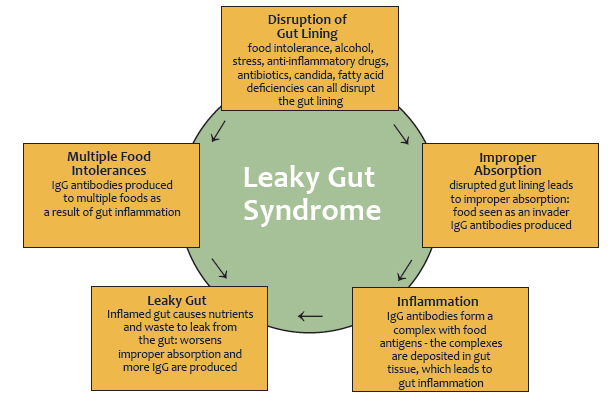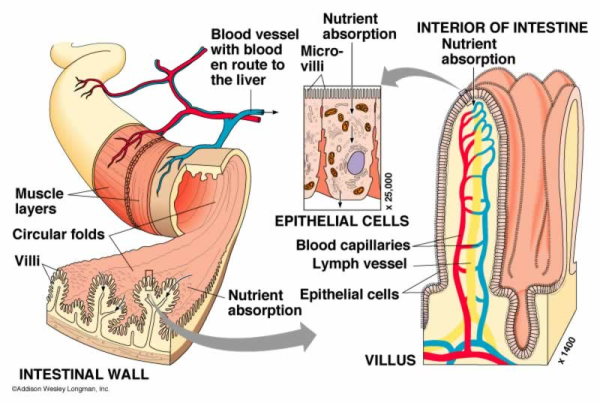Gluten Free Diet for Fibromyalgia
Gluten Free Diet is good Fibromyalgia patients
 Fibromyalgia is a disorder characterized by widespread muscle pain, joint stiffness, and fatigue. The condition is chronic but pain comes and goes and moves about the body. The cause of this disorder is unknown and therefore it is often misdiagnosed or unrecognized and is most of the times complicated by anxiety and mood disorders. this is a common disorder that according to the American College of Rheumatology diagnosis criteria affects about 3-5% of women, most of whom are between ages 20 and 50, but only 0.5- 1.6% of men. This disease is more common in adults than in children but it affects women more than men.
Fibromyalgia is a disorder characterized by widespread muscle pain, joint stiffness, and fatigue. The condition is chronic but pain comes and goes and moves about the body. The cause of this disorder is unknown and therefore it is often misdiagnosed or unrecognized and is most of the times complicated by anxiety and mood disorders. this is a common disorder that according to the American College of Rheumatology diagnosis criteria affects about 3-5% of women, most of whom are between ages 20 and 50, but only 0.5- 1.6% of men. This disease is more common in adults than in children but it affects women more than men.
What is gluten
Gluten is the protein in wheat, barley, rye, spelt, Kamut and triticale. Just as any other foods there are people who are allergic or tolerant to gluten. It is suggested that for these people removing gluten from their diets can help them as it may lead to improved skin, including fewer problems with breakouts, eczema and psoriasis; fewer migraines; and a lessening of vague, general symptoms of malady. Gluten has been linked to fibromyalgia and now it is suggested that those who are suffering from fibromyalgia can benefit from a gluten free diet.
Fibromyalgia is characterized by chronic pain sleep disturbance and fatigue combined with a general increase in medical symptoms such as problems of memory and often psychological distress. The pharmacological treatment of Fibromyalgia does not result in full healing but only offers partial relief. Fibromyalgia is mostly associated with depression and irritable bowel syndrome. On the other hand, Celiac disease is a frequent disease, affecting about 1 % of the population that can be diagnosed at all ages under different clinical settings. The classic presentation of Celiac disease is chronic diarrhea, positive anti-tissue transglutaminase antibodies (anti-tTG), and villous atrophy with intraepithelial lymphocytosis observed by duodenal biopsy. Celiac disease often does not conform to the classical clinical description, and up to 50 % of patients with adult Celiac disease lack prominent gastrointestinal symptoms. Clinical manifestations of Celiac disease include muscle and osteoarticular pain, fatigue, and neurological and psychological symptoms.
Research report on gluten-free diet
In a research that was aimed to describe selected patients with fibromyalgia, non-celiac gluten sensitivity, duodenal intraepithelial lymphocytosis, and clinical response to gluten-free diet, in order to raise the hypothesis that non-celiac gluten sensitivity could be a treatable cause of fibromyalgia it was found that remarkable clinical improvement can be achieved with a gluten-free diet in patients with fibromyalgia.
This study involved a trial of a strict gluten-free diet that was conducted with the help and training of the Celiac Disease Patients Association of Madrid. In addition, iron, vitamin D, and multivitamins supplements with oligoelements were prescribed to patients on this study. A lactose-free diet was also recommended when lactose intolerance was suspected on clinical grounds or demonstrated by a breath hydrogen test after lactose administration. Clinical response was defined as the achievement of at least one of the following scenarios: remission of fibromyalgia pain criteria, return to work, return to normal life as judged by the patient, or opioid discontinuation.
For this study, the mean follow-up period for the gluten-free diet was 16.4 months .Eight patients were also on a lactose-free diet. For five of these eight patients, a lactose-free diet had been attempted before the gluten-free diet, resulting in partial relief of the gastrointestinal symptoms but no improvement in the fibromyalgia symptoms. For three patients, a lactose-free diet was started concurrently with the gluten-free diet. The level of widespread chronic pain improved dramatically for all patients; for 15 patients, chronic widespread pain was no longer present, indicating remission of fibromyalgia. Fifteen patients returned to work or normal life after good improvements with the gluten free diet. In three patients who had been previously treated in pain units with opioids, these drugs were discontinued. Fatigue, gastrointestinal symptoms, migraine, and depression also improved together with pain. The clinical improvement for some patients began just a few months after beginning the gluten free diet therapy this was striking and showed how effective the gluten free diet therapy is beneficial to those suffering from fibromyalgia. For others the improvement was rather slow and gradual and took many months of follow up. It was also seen that some patients’ conditioned worsened when they took gluten but this was save when they were put on strict-gluten free diet.
 In this research it was observed that the reduction in the level of pain was accompanied by improvements in asthenia and gastrointestinal and neurological symptoms. This shows that a common underlying cause of fibromyalgia is related to gluten.
In this research it was observed that the reduction in the level of pain was accompanied by improvements in asthenia and gastrointestinal and neurological symptoms. This shows that a common underlying cause of fibromyalgia is related to gluten.
For this research, the clinical response definition was decided upon after the initial observations of impressive improvement in some patients after starting the gluten-free diet. This was the chosen outcome measure; the remission of fibromyalgia or return to normal life, rather than changes reflected by questionnaires. This is one of the treatments that have shown the highest degree of improvement in treatment of fibromyalgia. Most of the patients that were used for this research were under severe distress and disability and were unable to cope normally with daily activities or on sick leave, despite having been treated with many different regimens for years. This fact endorses the fact that gluten-free diet can help patients suffering from chronic pain as a result of fibromyalgia.
Chronic pain is a serious symptom of many diseases. Very many people who have bee to opioid use as a result of chronic pain sometimes end up being addicted to them. There is need to come up with safer alternatives to pain management. This is why here at AWAREmed Health and Wellness Resource Center we are committed to availing the best integrative approaches to treatment of diseases. Visit as at Myrtle Beach, South Carolina where Dr. Dalal Akoury (MD) will be of help.
Gluten Free Diet for Fibromyalgia






















